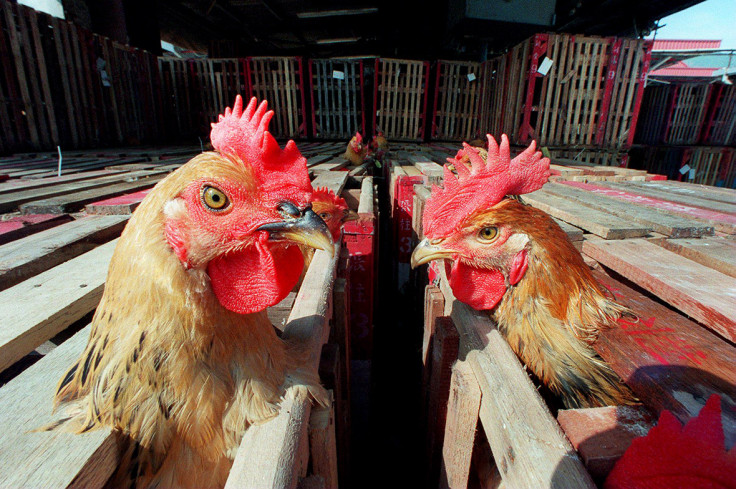American chickens have turned Europhiles into chauvinists
Americans are as fussy about hygiene as any people on Earth.

Extraordinary things, those delicious chlorinated American chickens. They turn Europhiles into chauvinists, internationalists into bigots, rationalists into Luddites.
Do you really suppose that America's FDA, a body whose first instinct is to ban things, would approve unsafe meat? Americans are as fussy about hygiene as any people on Earth: their food is so zapped that they can get upset stomachs abroad from microbes that the rest of us take for granted. They eat 186 million chickens every year with – guess what? – no deleterious effects whatever.
Why, after all, should washing chickens be dangerous? We wash our salad in chlorinated water. We glug down comparatively vast amounts of chlorine when we drink. Americans consume around 90 times as much chlorine in tap-water as from the traces in chicken. Every regulatory agency, including the European Food Safety Authority, agrees that American poultry poses no risk to human health.
So who disagrees? Quite a few people, as it turns out. If you want to believe something badly enough, you'll eventually convince yourself. And it turns out that several people want to believe that American chicken is poisonous. They're a rather eclectic alliance. Some of them dislike eating meat in principle, and especially dislike the way in which chickens are reared. Others are straightforwardly anti-American. Yet others hate trade, and imagine that we'd be better off with barter and self-sufficiency. These three groups overlap to some extent and, collectively, are not especially numerous. To give a very broad sense of what their numbers might be, the Green Party polled 1.6% at the recent general election.
They are joined, though, slightly incongruously, by a fourth group, made up of people who, consciously or unconsciously, want Brexit to fail, and so don't want a successful UK-US trade agreement.
Nick Clegg, for example, has described American chicken as "bleached, bloody horrible stuff which is not allowed in the EU". The defeated Lib Dem leader is a prime example of how Europhilia can lead you to strange positions. Though a liberal, he wants to constrain consumer choice. Though a cosmopolitan, he is happy to bore on about supposedly disgusting foreign food. Though a man who believes in science, he is whipping up superstitious fears against a kind of meat which I'll wager a pound to a euro he has eaten quite contentedly when in the United States himself.
Yet Cleggie will genuinely now have convinced himself that there is something dodgy about American hens. It's an extreme form of the confirmation bias to which almost all human beings are prone.
Without realising it, most of us tend to look for findings that back up our hunches, and to screen out those that challenge them. If you're a doctrinaire Leftist, for example, you might light on surveys that deny the heritability of intelligence. If you're a strict Catholic, your eye might be caught by studies showing that the contraceptive pill damages women's health. Either way, you'll think you reached your view quite impartially.
This is no less true of people who like to boast that "the scientific consensus" is on their side. On the contrary, I've noticed that those likeliest to accept the scientific consensus when it comes to, say, climate change are often the first to reject it when it comes to fracking being deemed safe – and, of course, vice versa.
People are allowed their opinions, obviously, and no less so just because the rest of us deem those opinions baseless. So how's this for a compromise? If you don't like the idea of chlorine-rinsed American chicken, don't buy it. Me? I look forward to tucking in.
© Copyright IBTimes 2025. All rights reserved.






















